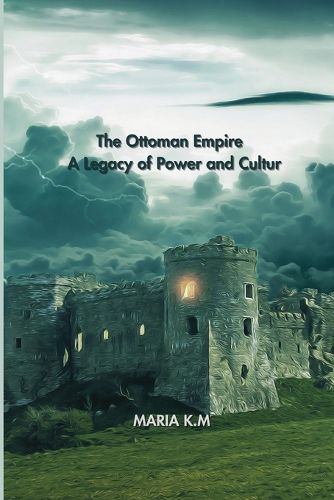The Ottoman Empire: A Legacy of Power and Culture
Maria K M

The Ottoman Empire: A Legacy of Power and Culture
Maria K M
This title is printed to order. This book may have been self-published. If so, we cannot guarantee the quality of the content. In the main most books will have gone through the editing process however some may not. We therefore suggest that you be aware of this before ordering this book. If in doubt check either the author or publisher’s details as we are unable to accept any returns unless they are faulty. Please contact us if you have any questions.
The Ottoman Empire, spanning over six centuries from its inception in the early 14th century to its dissolution in the aftermath of World War I, remains an enduring testament to the might and cultural richness of one of history's most influential empires. This remarkable realm, rooted in Anatolia and expanding to encompass vast swaths of Europe, Asia, and Africa, left an indelible mark on the world, leaving behind a legacy of power and culture that continues to captivate and inspire. At the zenith of its power, the Ottoman Empire was a juggernaut, wielding formidable military might and diplomatic finesse. Its armies conquered iconic cities like Constantinople, now modern-day Istanbul, in 1453, marking a pivotal moment in history. Under the leadership of dynamic sultans such as Suleiman the Magnificent, the Ottomans extended their dominion from Vienna in the west to Baghdad in the east, imprinting their rule on diverse peoples and regions. Their military prowess and strategic alliances kept European powers and neighboring empires in awe and fear. Yet, the Ottoman Empire was not just about military conquests. It was a crucible of culture, art, and innovation. It absorbed and synthesized influences from the Byzantine, Persian, Arab, and European worlds, giving birth to a distinctive Ottoman culture. Its architecture, exemplified by the grandeur of the Blue Mosque and Topkapi Palace, showcased intricate tile work and exquisite design. The Ottomans fostered a thriving literary tradition, producing iconic poets like Rumi and Hafez. Their calligraphy and miniature painting flourished, while their cuisine, with dishes like kebabs and baklava, became legendary. Religious tolerance was a hallmark of the Ottoman Empire, where Christians, Jews, and Muslims coexisted, each contributing to the vibrant tapestry of Ottoman society. The devshirme system, which recruited talented individuals from non-Muslim communities into the elite Janissary corps, exemplified this inclusive approach. The Ottoman Empire's legacy is felt in the modern Middle East, Balkans, and Anatolia, where its borders and institutions still shape the political landscape. Its cultural influences have reverberated through time, impacting music, art, and cuisine far beyond its borders. In conclusion, the Ottoman Empire's enduring legacy of power and culture is a testament to its profound impact on the course of history. Its conquests and innovations continue to inspire and educate, reminding us of the remarkable fusion of strength and sophistication that defined this remarkable empire.
This item is not currently in-stock. It can be ordered online and is expected to ship in 7-14 days
Our stock data is updated periodically, and availability may change throughout the day for in-demand items. Please call the relevant shop for the most current stock information. Prices are subject to change without notice.
Sign in or become a Readings Member to add this title to a wishlist.


